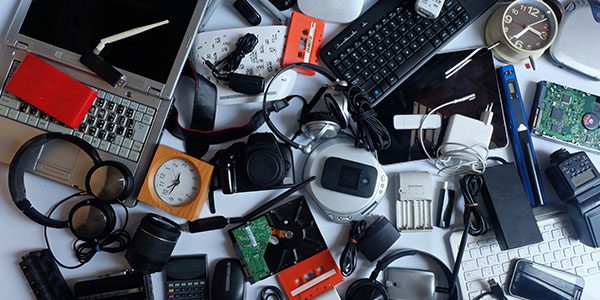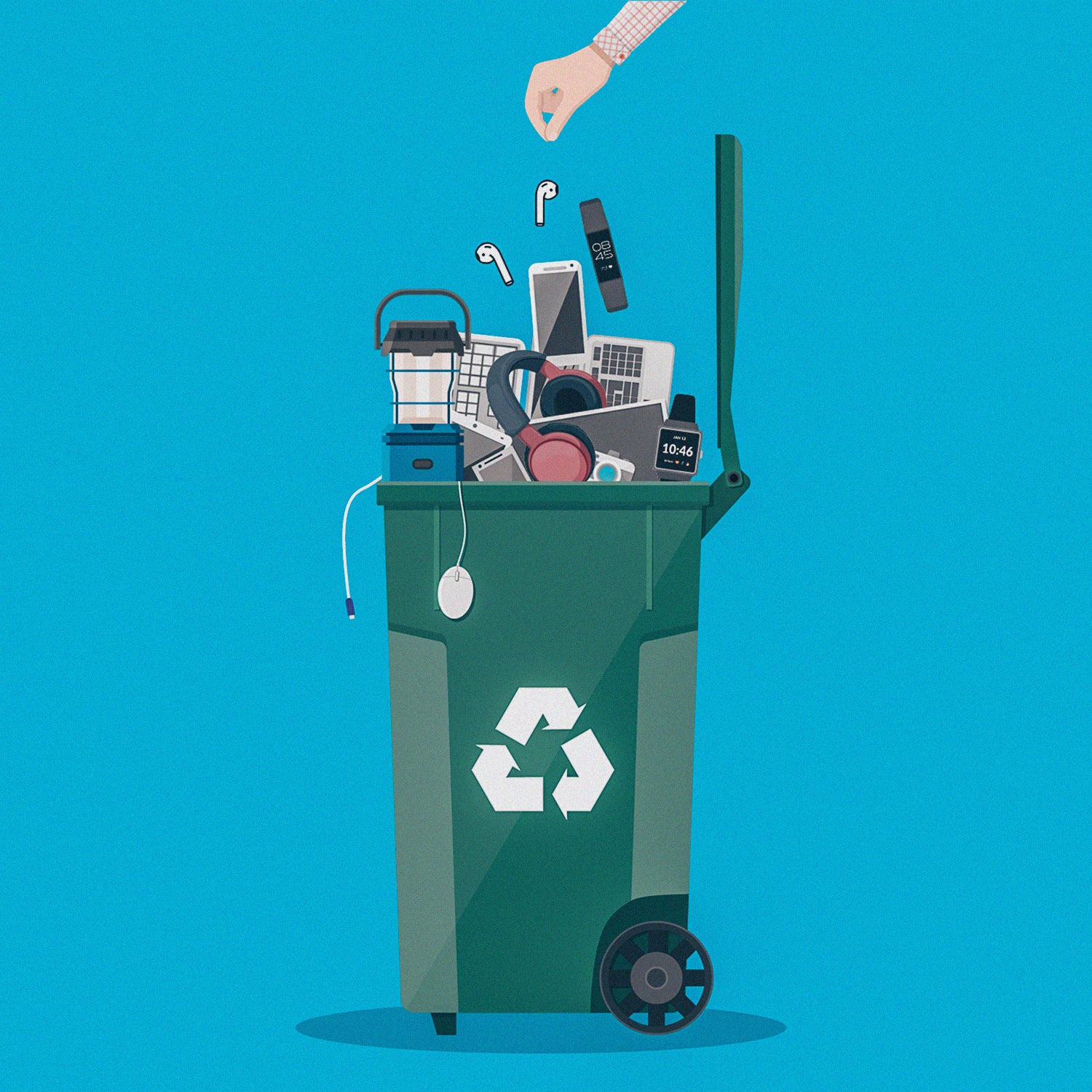Eco-Friendly Electronics Recycling Solutions: Trust Fund the R2 Certification Criterion
Eco-Friendly Electronics Recycling Solutions: Trust Fund the R2 Certification Criterion
Blog Article
Elevate Your E-Waste Administration With R2 Certification: an Extensive Introduction
One key technique to raise e-waste monitoring techniques is by attaining R2 accreditation. By discovering the advantages and processes connected with R2 qualification, a much deeper understanding of just how it can change e-waste monitoring strategies arises, shedding light on a course towards sustainability and ethical disposal practices.
Relevance of E-Waste Administration

When e-waste is not managed properly, these harmful materials can leak right into the environment, causing harm to wildlife and possibly entering the food cycle, presenting threats to human wellness. The incorrect disposal of e-waste adds to pollution and greenhouse gas discharges, aggravating climate adjustment and ecological destruction.

Advantages of R2 Qualification

To start with, R2 qualification improves integrity by showcasing an organization's commitment to lasting techniques. It guarantees customers, partners, and stakeholders that the firm sticks to stringent criteria for e-waste management - r2 certification. This reputation can result in enhanced trust and boosted partnerships with clients that prioritize ecological responsibility
Second of all, R2 certification assists reduce risks linked with improper e-waste disposal. By complying with the rigorous standards established forth by the certification, companies can minimize the possibility of information breaches, environmental contamination, and lawful repercussions. This positive technique safeguards the company's track record and reduces possible responsibilities.
Last but not least, R2 accreditation shows a dedication to environmental stewardship - r2 certification. By properly taking care of electronic waste via certified processes, organizations contribute to the preservation of sources, decrease of contamination, and promo of a round economy. This commitment not just profits the environment but also aligns with evolving consumer expectations for lasting business techniques
R2 Accreditation Refine Review
Having actually developed the benefits of R2 certification in advertising credibility, risk reduction, and ecological stewardship, it is vital to currently lay out the thorough process associated with obtaining this qualification. The R2 accreditation procedure starts with a thorough evaluation of the company's operational plans and treatments to guarantee conformity with the R2 requirement. This initial evaluation is important in identifying any type of gaps that require to be addressed prior to proceeding better.
When the organization's techniques line up with the R2 conventional needs, an independent third-party auditor carries out an on-site audit to evaluate the application and performance of these practices. This audit consists of a comprehensive testimonial of documentation, meetings with team, and physical evaluations of centers to validate conformity.
Following a successful audit, the company obtains a certification decision based on the auditor's searchings for. If accepted, the organization is approved R2 certification, demonstrating its commitment to responsible e-waste monitoring. It is essential to note that maintaining This Site R2 certification requires ongoing compliance with the standard's demands and regular audits to make sure continued adherence to best practices in e-waste recycling and disposal.
Key Standards for R2 Conformity
An essential aspect of achieving R2 compliance is guaranteeing that all electronic waste (e-waste) handling centers satisfy stringent ecological and security requirements. To adhere to R2 requirements, companies must follow crucial standards that concentrate on responsible e-waste administration methods. These criteria include executing a recorded ecological, wellness, and safety monitoring system, making sure the safe and secure handling of data-containing tools, and conducting thorough downstream due diligence to track the final location of e-waste products.
Furthermore, R2 conformity demands the proper testing, repair, and recycling of electronic devices to expand its useful life and decrease ecological impact. Facilities looking for R2 accreditation have to additionally focus on worker wellness and safety by providing needed training, personal protective tools, and a risk-free working atmosphere. In addition, keeping comprehensive documents of e-waste processing activities and on a regular basis undergoing audits by certified certifying bodies are find this essential elements of showing recurring compliance with R2 requirements.
Impacts of Sustainable E-Waste Practices
The implementation of sustainable e-waste methods in conformity with R2 compliance not just guarantees environmental and safety standards are met yet likewise significantly impacts the general lifecycle of electronic products. By sticking to R2 standards, digital waste monitoring procedures come to be much more efficient, minimizing the environmental footprint of digital products. Lasting e-waste techniques facilitate the appropriate disposal of electronic parts, guaranteeing that harmful materials are dealt with responsibly and do not wind up polluting the environment.
Furthermore, lasting e-waste practices can contribute to job creation in the recycling and repair industries, promoting financial growth while advertising environmental duty. Overall, the fostering of sustainable e-waste practices under R2 qualification go now serves as a vital action towards attaining an extra environmentally sustainable electronics market.
Verdict
To conclude, implementing appropriate e-waste monitoring practices is essential for environmental sustainability and resource conservation. R2 accreditation plays an essential role in ensuring liable handling and disposal of electronic waste. By adhering to the stringent standards stated by R2 criteria, organizations can not only decrease their ecological impact but also add to a more lasting future for generations to find.
One secret technique to boost e-waste management practices is by obtaining R2 qualification. By exploring the procedures and advantages linked with R2 certification, a deeper understanding of exactly how it can revolutionize e-waste monitoring methods arises, dropping light on a course towards sustainability and moral disposal methods.
The R2 qualification process begins with a detailed testimonial of the company's operational plans and treatments to ensure compliance with the R2 requirement. If authorized, the company is granted R2 certification, demonstrating its commitment to responsible e-waste monitoring. Generally, the adoption of lasting e-waste techniques under R2 certification serves as a vital action in the direction of attaining a much more environmentally sustainable electronic devices market.
Report this page